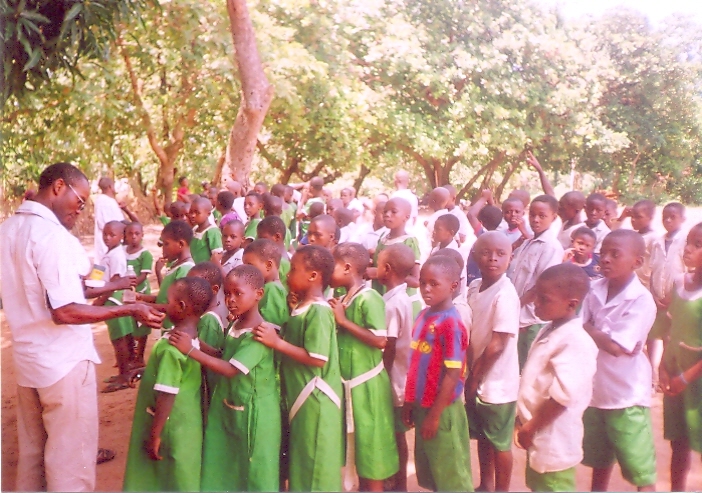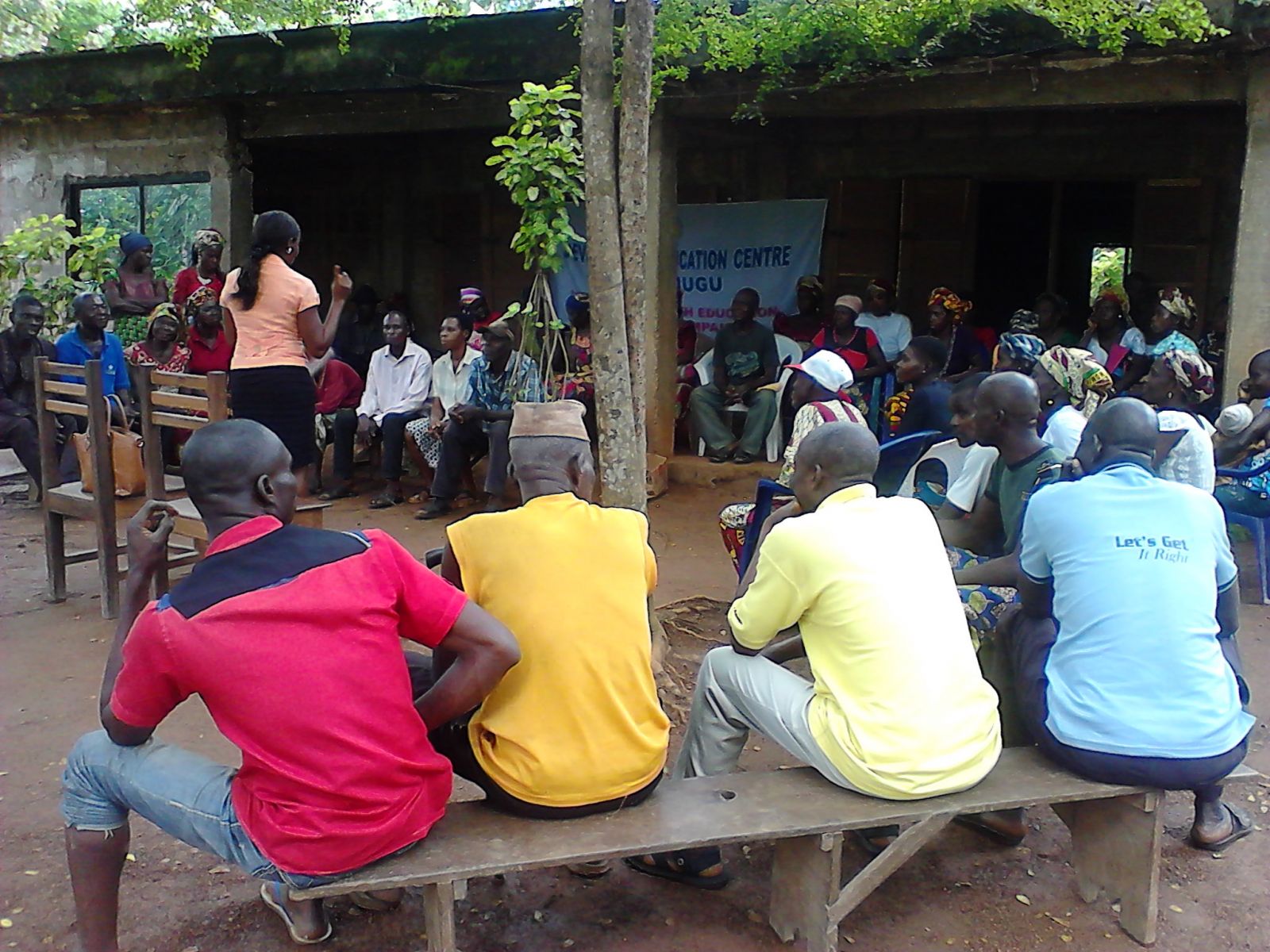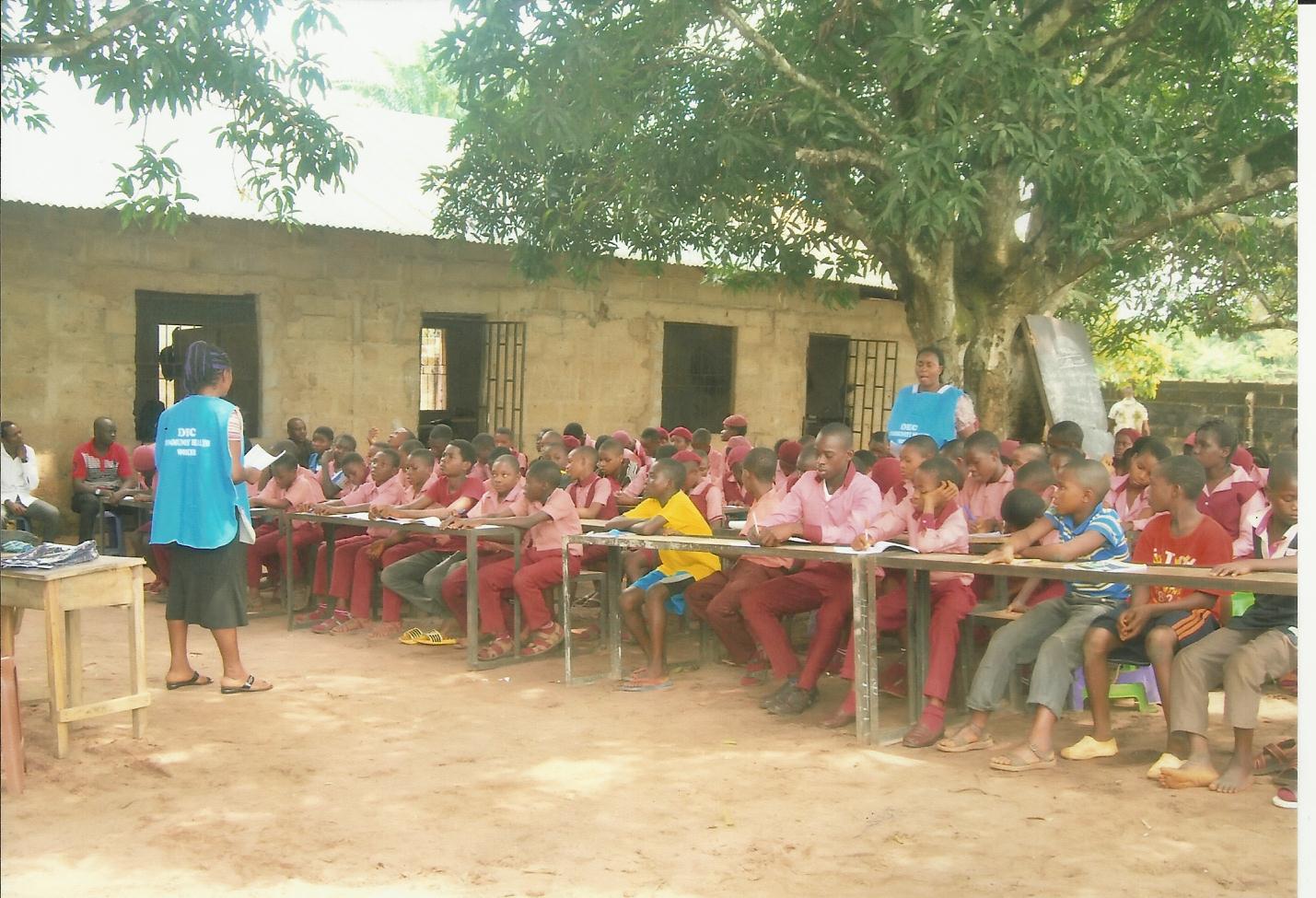BASIC HEALTH CARE SERVICES
Provision of basic health care services in rural remote Communities by Development Education Centre (DEC) Enugu is geared towards the following activities:
• Free medical mission (Mobile Clinic) with Consulting doctors and nurses.
• Health Awareness Creation/Education on prevention and control of communicable and non-communicable diseases.
• Training and Re- Training of Community Health Workers.
• Advocacy visits to local government authorities and Community Stakeholders on functionality and accessibility of Community Primary Health Centres.
• Making referrals with feedback mechanisms to patients with complications detected during mobile clinics by the consulting Doctor.
FREE HEALTH CARE SERVICES (MOBILE CLINIC)
DEC free health care services (mobile clinic) started in 2005 and is aimed at providing at the door step access to quality health care to the people especially in rural remote areas that have little or no government presence in respect to health facilities. The mobile clinic team is made up team of a medical doctor that diagnose and prescribe drugs for patients and B.Sc nurses that reads the vitae signs, and dispenses drugs based description to patients. In every outreach, the team diagnoses and treats at 120 men, women, youths and children of different diseases such as malaria typhoid fever, arthritis, ulcer, HBP, diabetes, respiratory tract infections, diarrhoea etc. The unit had reached over 30,000 men, women and children in the south east and north central States of Nigeria (Enugu, Abia, Imo, Anambra, Ebonyi, Kogi, Benue) During the clinic also, primary schools are visited by the team where school children from ages 2-10 years are de-wormed with de-worm tablets. Over 11000 children has benefitted from this exercise. So many case stories had been recorded on this programme as it provides succor to people especially women and children that has no option than to resort to quarks in the local communities for treatment.
COMMUNITY HEALTH EDUCATION/AWARENESS CAMPAIGN
On health awareness creation, the unit in line with the National Health Policy developed a course track on community health education and promotion on health related topics common to the rural dwellers in order to wipe away ignorance attached to their health attitudes. The health topics include-
• Food and Nutrition
• Hygiene and Safety
• Reproductive Health
• Communicable Diseases such as HIV/AIDS, hepatitis, polio etc.
• Adolescence Health
• Child Health
• Water and sanitation
• School Health Services.
The overall goal is to provide information and education to the rural dwellers on prevention and control of dreaded diseases so as to improve on their healthy living especially the vulnerable groups, women and children and then reduce and prevent the prevalence of infectious diseases. Over 10,000 men, women, youths and school children had benefited in this programme especially in communities where DEC work. The health education and awareness are being organized in women community based organization meetings, August women meetings, women church meetings, town union meetings, men village meeting, in market places, churches, schools, youth meetings etc. For instance ,some communities in Igalamela/Odolu LGA of Kogi State have learnt during one of the Health Education Session that open defecation which is very common with them as a result of the polygamous nature of most families, can lead to water pollution which can cause diarrhea, typhoid fever, cholera etc. For this reason they made it compulsory that every family must have pit latrine closed with water closet seat and failure to do so the head of the family will be reported to the Sanitary Officers. Women also learnt how to allow the immunization teams to immunize their children unlike before they believe that immunization can lead to other diseases. It was during DEC Health Education on maternal and children health that learnt the essence of immunization.

TRAINING AND RE-TRAINING OF COMMUNITY HEALTH WORKERS-
DEC Enugu in this unit has trained and re trained over 200 community health workers who are health advocates, traditional birth attendants, volunteers in their community primary health centers, and those who have formerly gained employment by the LGA authority in primary health centers in their communities. These community health workers are being trained by Consultants from the department of Public Health Aide from University of Nigeria Teaching Hospital, UNTH, Enugu with a-3 year designed curriculum with 4 training sessions per year. They are put to test every end of the year and successful ones are issued with first aid boxes which they use to treat minor ailments in their various communities such as malaria, cough, minor cuts and wounds, arthritis etc. They also check vitae signs of patients such as blood pressure, Random Sugar Level, temperature & weight. The trained health workers who are health advocates have properly educated over 10,000 village dwellers with their health advocacies, treatments, immunization in the church, village meetings, schools, during ante-natal and post-natal visits of nursing mothers.

ADVOCACY VISITS TO LOCAL GOVERNMENT AUTHORITIES AND STAKEHOLDERS ON FUNCTIONALITY OF COMMUNITY PRIMARY HEALTH CENTRES-
DEC ENUGU in her quest to provide access to quality health care of the people in a sustainable way organizes advocacy visits to local government authorities with DEC Steering committee members who are also the stakeholders of the community demanding for the provision of all the resources needed for the functionality of their primary health Centre. This is because, 80% of the government or individual built hospitals are under lock and key because of poor supervision by the government especially on the staff. Secondly, the community people are not conscientized to own and manage the health centre. Then, then DEC as a civil society organization who that works in the area of community based health care services demands that government in their capacity should make provision for the necessary resources such as personnel who are indigenes of the community, drugs, hospital equipment, etc. and then conscientize the community on ownership.
This strategy had resulted to a tremendous achievements in communities where DEC work. More than 7 primary Health centres that were abandoned or under lock and key are now functional and accessible all year round with drugs, a visiting doctor, indigenous nurses and equipment available. These health centres are Amosu in Okigwe LGA, Ngada Umuelem in Umunneochi LGA,Achara in Umunneochi, Amaekwuru Lokpa in Umunneochi LGA, Ikpakpara Aguamede in Isi-Uzo LGA, Itchi in Igboeze South LGA,Amaja in Igboeze North LGA. This has drastically reduced the rate at which people patronize quacks especially the pregnant women during delivery. DEC in her support provides drug revolving loans, provides minor equipment in counterpart with the community based organizations in that community.

REFERRALS TO SECONDARY HEALTH CENTRES WITH FEEDBACK MECHANISM-
DEC Enugu in this recent time make referrals of patients with complications detected during mobile clinics by the consulting doctor to a secondary health centres owned by the government or mission. This is to assist the individual to obtain the necessary treatment and cure to the disease.